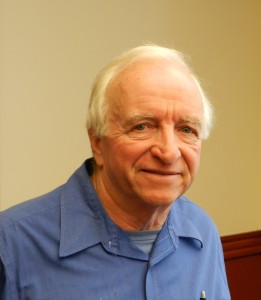
Assemblyman Adam Gray apparently thought a visit to Friday’s Water Summit on Crows Landing Road in Stanislaus County would be an opportunity to score easy political credits. He must not have realized Valley citizens are rapidly becoming informed enough to ask tough questions.
So when Neil Hudson, who is a member of the Stanislaus County Water Advisory Committee (WAC), asked Gray whether the state would give local authorities enough power to enforce new groundwater regulations, Gray was flummoxed.
“I’m not prepared to answer that,” he replied.
After that, Gray’s only option was a hasty exit. Today’s key issues on groundwater are governance and enforcement. Politicians who fail to address those issues will lose their audience.
In addition to serving on the WAC, Neil Hudson is president of the Stanislaus Water Coalition, a group of citizens especially concerned with problems posed by industrial-sized wells in the foothills of eastern Stanislaus County. Earlier last week, Hudson’s group hosted a meeting in Oakdale where Stanislaus County Supervisors Bill O’Brien and Terry Withrow addressed questions raised by local citizens.
In response to a question about enforcement and regulations, Withrow said, “We’ve got to be flexible.”
“There comes a point when it’s so flexible you’re not really regulating anything,” said Brad Barker, Conservation Chair for Yokuts Sierra Club.
Barker is only one among a growing number of informed Valley residents who realize pumping groundwater threatens public resources by taking water from rivers, lakes, and reservoirs. Friday, when representatives from Oakdale and Riverbank reported that their groundwater levels had remained stable during the drought, Barker and others figured the probable explanation was both cities’ locations near the Stanislaus River.
Seeking confirmation, Barker asked Turlock’s Garner Reynolds whether Oakdale’s and Riverbank’s stable groundwater levels were most likely because the two cities were located along the Stanislaus River. Reynolds is Turlock’s Public Works Director. His answer was, “That’s a fair assumption.”
Despite growing knowledge about effects of pumping on surface water, politicians haven’t shown they’re yet ready to protect the public interest. Residents who’ve had their wells go dry have gotten most of the attention, but given the volume of pumping, it’s only a matter of time before more Valley citizens realize their own water rights are being abused.
Mike Tozzi, a Water Coalition member* who attended last Monday’s meeting in Oakdale is among several east side residents who’ve had their residential wells run dry. His remarks may presage more widespread alarm over pumping thousands of acre feet of groundwater that is ultimately dependent on surface water for recharge.
“It makes you wonder what the new definition will be for a shallow well,” said Tozzi. “No family should have to be the victim of any industry.”
As more and more information about effects on public water resources comes to light, pumping groundwater will require much stricter governance and regulation. And as the public becomes more and more aware, politicians had better be prepared to address difficult questions. The alternative is ongoing exploitation of the public trust aided by politicians as unprepared to respond as Adam Gray was last Friday.
*Mr. Tozzi has informed us that he is a former member of the Stanislaus Water Coalition. We appreciate the correction.
